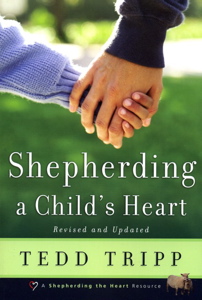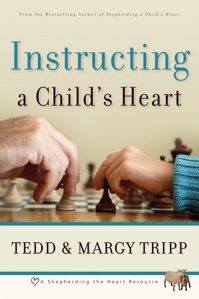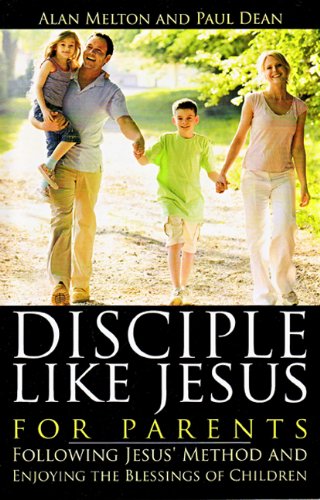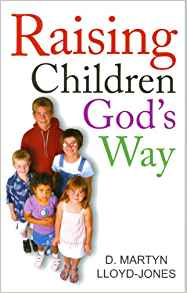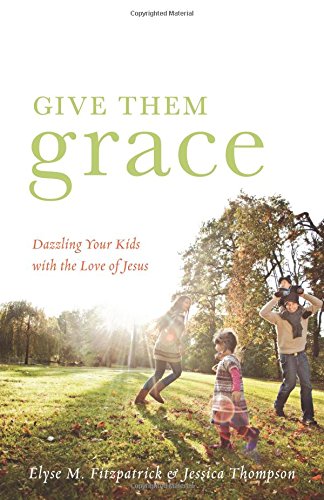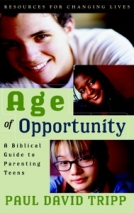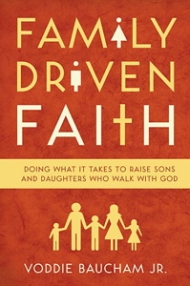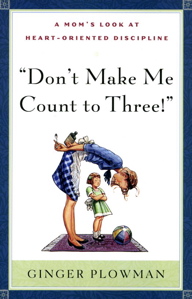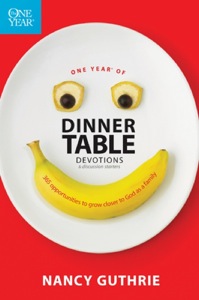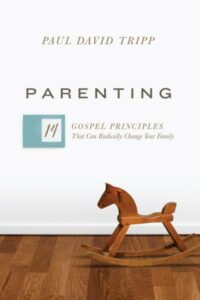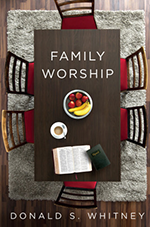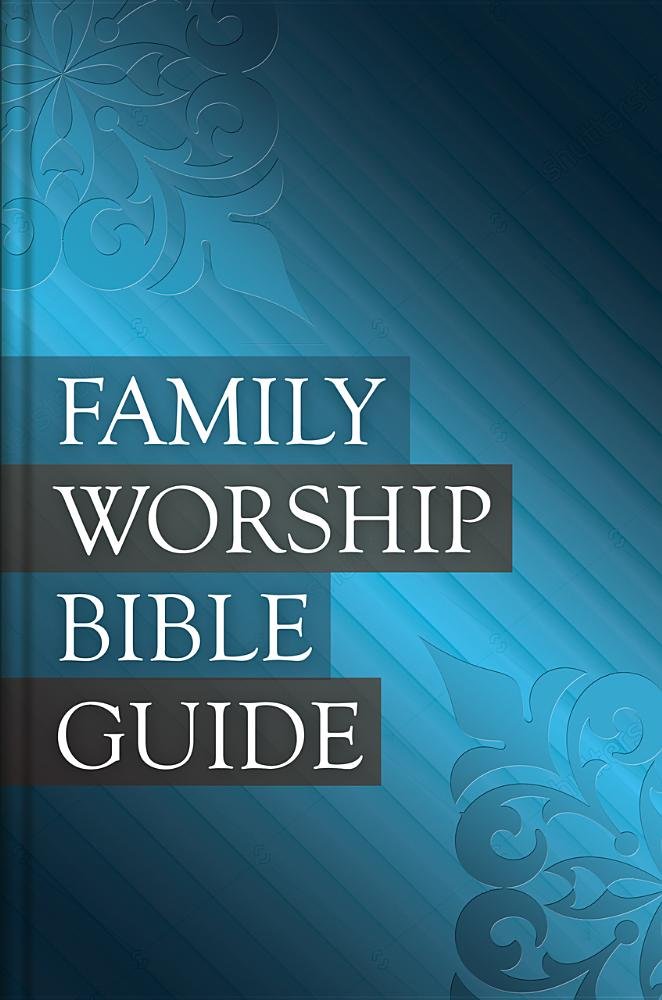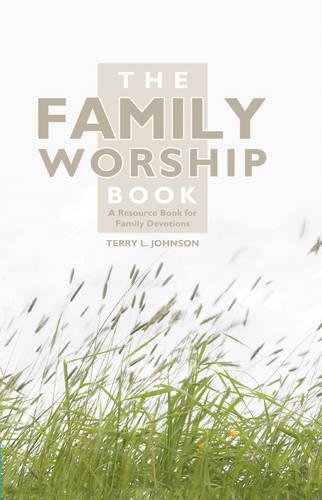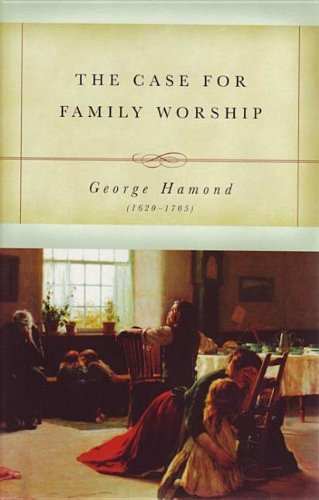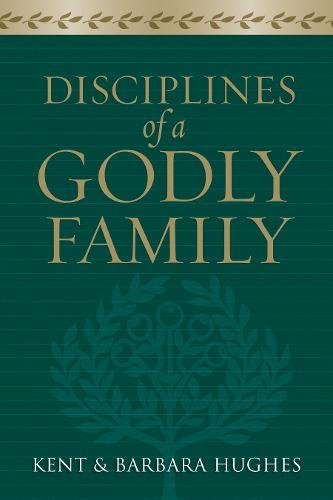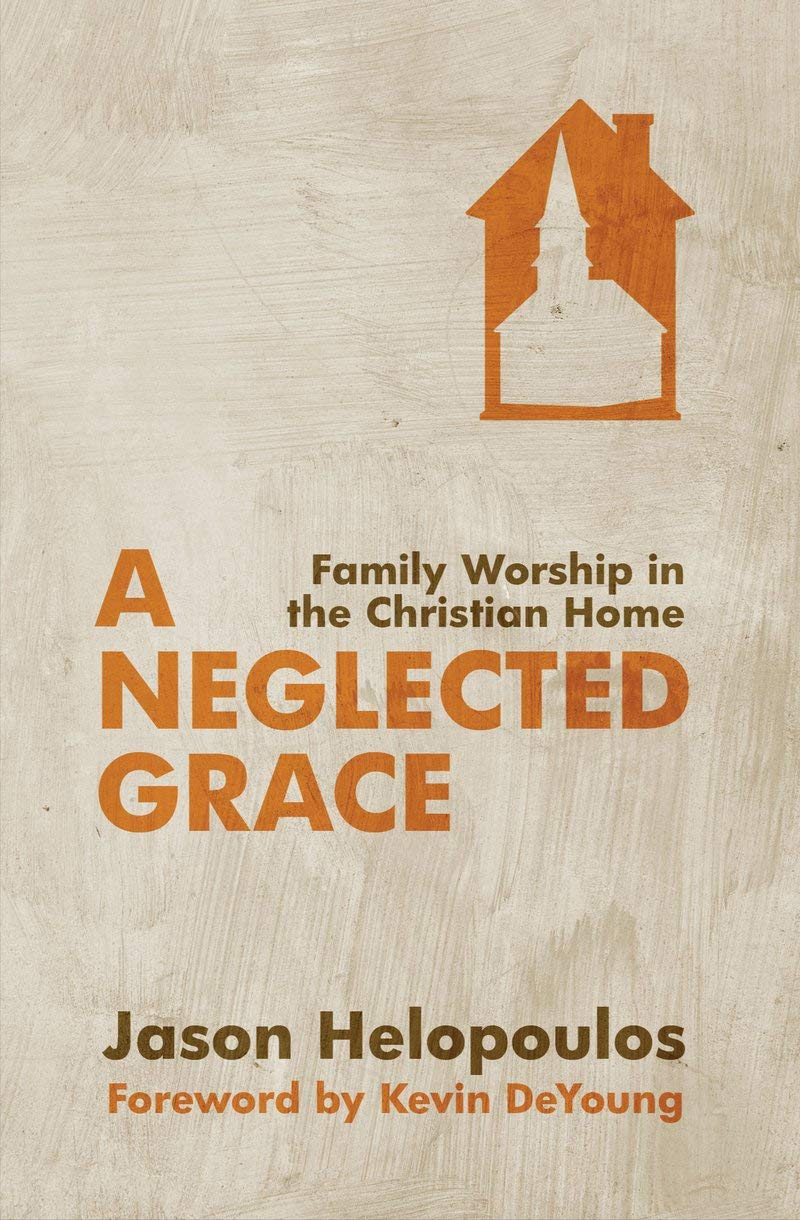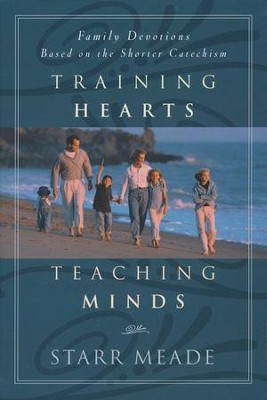The family as an institution belongs to the natural order. Its welfare tells on that of the community, and of the State, and of the world. So also what affects it to its hurt has an injurious influence on all the constituencies that reap the benefit of its well-being. There is a bond of nature that binds together husband and wife, parent and child, brother and sister. And the bond of kinship alike by way of blood and by way of affinity helps to bind into one the larger units of the local community, the State, and the race. Thus nature itself teaches us to aim at the furthering of the well-being of our flesh and blood who are our kith and kin. What belongs to the order of nature is taken up into the sphere of grace and all that is good in it is guarded and confirmed and intensified. The godly discipline of the Church is meant to defend the home.
When we face the question of how the specific Reformed Faith has told on the ethical good of the family we do not mean to make exclusive or monopoly claims on behalf of either the Faith in general, or the purest exhibition of the Faith in particular, as if in no sense and to no extent the good of the Family were attained outside the range of Christian, or the highest, influences. There is such a thing as common grace which keeps the world from being all that the unchecked wickedness of mankind would make it. Nature itself bids us seek the good of our home. Every Christian society acknowledges this. And however seriously some exhibitions of the Christian Faith may diverge from the final norm of apostolic truth, yet, in so far as the element of Christianity is at work in appropriate practice, it tells in the direction of ennobling and purifying the life of the households of the Church. That form, however, of the Christian Faith which does fullest justice to the claims of God and His Christ is fitted to do the greatest service in giving to the home the place that rightfully belongs to it.
In maintaining the position that the purer the faith and the life of the Church is, the more salutary is the influence that it has on the home, we thus do not set aside nor ignore the measure of justice done to domestic claims in other systems. For it would be unnatural for any parent not to seek what he looked upon as the good of his family. Common consent is at one on this matter. But when we take note of the whole range of opinion and sentiment that has to be taken into account we may easily see how the thing that is deemed to be good may differ greatly in the different circles of human society. This divergence of outlook and estimate is due to the havoc that the entrance of sin has wrought on the good order of primitive and unfallen human nature. Those who hold to an evolutionary or naturalistic origin of man and of society are shut out from such an explanation of how the standard of acknowledged good is such a varied one among men. But Christianity as it accepts the witness of Divine revelation to the fact of the Fall and its results, has an explanation ready to its hand of how there is such a marked difference of judgment between man and man, and between land and land. Those who have learned to say, ‘All we like sheep have gone astray,’ see how wide a field the straying flock of mankind may cover as they part company in their devious wanderings.
Common Christianity recognizes the obligation that lies upon the Church to have regard to the will of the Lord as He has made it known. So the type of ethics that is truly Christian confesses the Lordship of the Savior and the obligation that is thus laid upon us to honor his authority in doing His will. All that is valid and truly moral in Ethics as taught in the schools of philosophy is taken up and sublimated in the realm of Christian duty; and the bonds laid upon men by the good order of the original constitution of the race, and of the world, are laid afresh, as it were, on these who are the willing bond-servants of their Redeemer as their Lord. The relations in which men thus stand to one another by reason of their family ties are stamped with the authoritative brand which tells that by coming to be new men in Christ the household of faith have not ceased to be men. All that is incumbent upon them as men in their divers relations to each other is part of the obedience that their Lord who has redeemed them calls upon them to yield to Him as His own right. In the claims that are thus made, those of family life are included, and the household as a unit is held to belong to the Lord who as Creator and King originally gave to it its constitution.
Now the view that is held by the typical and representative thinking in the Reformed Churches as to the Scripture doctrine of what makes up the Church of God is one that lays special stress on the Church in its spiritual reality as it is known to God. The Church in its real being is constituted of those who have been chosen to eternal life, redeemed by the ransom price paid in the Blood of the sacrificial Lamb of God and called by grace to His fellowship. At the same time as this entity in its spiritual being and glory is recognized to be the true Church of God, our Reforming fathers confessed the truth of Scripture as to the visible form that the Church assumes in its embodiment on earth. Thus looked at, it is seen to include all men everywhere who profess the truth of God, who with their children make up its constituents. This definition of the visible Church as inclusive of the children of believers is a feature of historical Reformed teaching on this subject; and to it is due the recognition of the household as an integral unit in the Christian commonwealth. The recognition of the visible Church, in the sense in which the Reformers held it, raises one of the questions on which post-Reformation attempts to improve on their teaching parted company with their thought by taking up narrower ground. Those attempts achieved the disintegration of the Puritanism of England in the seventeenth century.
The idea of the Church which was entertained by the Independent brethren of the age of the Commonwealth in England was one which recognized the existence of a visible Catholic Church. But in the Savoy definition they omitted from it any recognition of the children or households of Believers as though these had no place in it. This we may see when we compare Chapter XXVI of the Savoy Confession in its second paragraph with the corresponding paragraph of Chapter XXV of the Westminster Confession. These paragraphs deal with the Church as visible. The former reads: ‘The whole body of men throughout the world professing the faith of the Gospel, and obedient unto God by Christ according unto it, not destroying their own profession by any errors everting the foundation, or unholiness of conversation, are and may be called the visible catholic Church of Christ, although as such it is not entrusted with the administration of any ordinances, or hath any officers to rule or govern in or over the whole body.’ The Westminster statement reads: ‘The visible Church which is also Catholic or Universal under the Gospel (not confined to one nation, as before, under the law) consists of all those throughout the world that profess the true religion; and of their children; and is the Kingdom of the Lord Jesus Christ, the house and family of God, out of which there is no ordinary possibility of salvation.’
The Independents look upon the Church as being at bottom a local autonomous unit which is made up of those that have entered into the Church Covenant and have been accepted and acknowledged by the brotherhood into whose covenant and fellowship they have entered. As a larger unit they regarded it as the aggregate of those who may be at least the potential members of such primitive cells of Church fellowship; and this might be called the visible catholic Church. In keeping with this omission of any mention of the household as a unit in the local ecclesia there followed, with a measure of logical consistency, the action that was taken by one wing of the Independent movement. It was indeed no strange phenomenon that Independents, who, while in other respects they held the common faith of the Reformed Churches, yet stressed the ideal or spiritual individualism which underlay the pure communion which they as Independents sought to secure, should fail to find a place for the household of the believer along with himself in the visible Kingdom of God. And so it came to pass that as the radical wing of Independency they adopted the principles of the Baptists and introduced into the Anabaptist movement the Calvinistic strain of teaching in regard to the doctrines of grace which was by no means a salient feature of the earlier manifestations of a Baptist tendency in the Churches of Britain. They failed to see that with their definition of the local ecclesia it could have any place in its bosom for more than those who were accepted as candidates for Baptism and were on their own profession and immersion recognized as having the standing of members in the Church to which they were joined.
This wing of the Independent movement cut out any definite acknowledgment of the household as a unit in the Church of God. By so doing they did not mean to set aside Apostolic teaching in regard to the natural unit of the household or the obligations that the Epistles lay on parents and children alike. Yet their attitude to the household as such was so far one that was materially different from that which expressed the older Reformed view. It looked on the children and household of a Church member as being outside the range of the discipline and oversight that are proper to the members of the Churches. Such a divergence of view had its necessary outcome in the practical working of their Church system in as far as it differed from the standard type as seen in the historical Reformed Churches whose polity they had given up.
The less radical wing of the Independents, by what one might call a less strict reading of the significance of their departure from the Reformed conception of the constitutive elements of the visible Church, or, as one might express it from the standpoint of those who accept that conception, by a happy inconsistency, still held on to the common practice of Christendom as a whole, which recognized the household of the believer as holy in an outward federal sense and as such entitled to be acknowledged as set apart for God and Christ. They continued the custom of recognizing the unity of the household so far as baptized membership of the Church is concerned. And among the early Independents who took this line there was such a conscience developed in regard to the infants of the Church members as kept pace pretty much with the practice of the Reformed Churches. These Reformed Churches struck no uncertain note in their acknowledgment of the children of believers.
The standing of membership in the visible Church that was thus acknowledged to belong to the children of Christian homes might be treated in two distinct ways in the service of their baptism which was their public recognition as members. One of these ways is taken in the baptismal service of the Anglican Church, a church which in the teaching of its Articles of Religion belongs to the fellowship of the Reformed Churches. This goes on the assumption that the sponsors or sureties for the child pledge in its behalf faith in Christ and obedience to His will. The service says: ‘The infant must also promise by you his sureties (until he come of age to take it upon himself) that he will renounce the devil and all his works and constantly believe God’s holy Word and obediently keep His commandments.’ In charitable anticipation which, it may well be, goes further than the facts of life warrant, the baptized child is spoken of as regenerate. This service is one that takes for granted that what is professed will be made good and that the child will without fail yield the obedience of faith to the Gospel. On the understanding that this profession is in due course crowned with fulfillment there is a giving of thanks for the regeneration of the infant. It is altogether on the basis of such an assumption that the service is constituted. At the Savoy Conference this was one of the things that Baxter and his fellows who acted for the Puritans sought to have modified. In this endeavor they failed, and since the Act of Uniformity the Church of England has been in the ambiguous situation of seeming in so many words to teach a Baptismal regeneration to which she is not bound by the teaching of her Articles, while those who adhere to the Reformed reading of her formularies have to stand on the defensive against the attacks of the high Sacramentarians, to maintain the validity of their interpretation of the order for Baptism.
The other way of admitting the children of the faithful to a recognized place among the members of the Visible Church is that which the Westminster Directory takes. Here stress is laid upon the fact that the promise given to the father of the faithful that God would be his God and the God of his seed is current still and gives a place to the children of believers among the people of God. It assigns them a place in that holy nation which in respect of calling and privilege God has separated from the world and claims as His own. On them He bestows special advantages and at their hand accordingly He claims that they should yield a return that will respond in love and loyalty to the word of promise and His demands for worship and obedience.
In either of these ways of accounting for the administration of the seal of the Covenant to the children of the Church it is obvious that there is an undertaking given, implied or expressed, that they shall be taught the truth of Law and of Gospel, and that they shall be trained in the ways of the people of God. The fact that in the one case sponsors other than the natural guardians answer on behalf of the child does not free the parents from the burden of responsibility that lies upon them to teach and to train. In the other case the parents are to be expressly exhorted to consider the great mercy of God to themselves and their child; to bring up the child in the knowledge of the grounds of the Christian religion, and in the nurture and admonition of the Lord. They are to be told of the danger of God’s wrath to themselves and their child if they are negligent. And the officiating minister is to require their solemn promise for the performance of their duty. In whichever of these ways we deal with the admission of child members, the Church looks upon the Christian home as a school for imparting the knowledge of the Word of God, and for training the rising generation which is the hope of the future, in the faith and obedience of the Gospel of salvation. The acceptance then of the children as members of the Church lays a special load of responsibility on both the Church which admits them to membership to see to their worthy training, and on their parents who have now the charge in their early years of the acknowledged members of the Church of God, to attend to their tuition.
In contrast with the individualism on which such stress was laid in varying degrees in both wings of the Independent Movement, the attitude of the Reformed Churches in treating the household of the professed believer as having a recognized place among the constituent units of the visible Church was one that called upon the Church and its ministry, as well as on the head of the house, to pay special heed to household consecration, worship and oversight. There is a close connection between the Reformed emphasis on the family as a unit in the Church, and the view that our Reformed fathers took of the care with which the Lord’s Day as the sacred day of rest ought to be observed. They aimed at teaching the children of the household the habit of waiting regularly on the ordinances of public worship that, having been trained in their youth to do so, they might continue in mature years to practice the assembling of themselves together in the corporate worship of the Church. They aimed at more; they called for private exercises for the household of that worship to which they looked upon the day as wholly set apart. So they gave direction to the household as to its special duty. In this respect the documents of the unbroken Reformed Church of this country, as they set forth its teaching and practice may be taken as authoritative exponents of the view taken by the Reformed Churches as a whole of the household and its place in the Church. To this more comprehensive view of the constituency of the professing Church of God, a view that took men at their uncontradicted profession and devoted the fostering interest and care of the Church to the welfare of the household as a unit, and also of those that are not yet in Christ, Rutherford refers in his letter to his friends at Aberdeen, who set themselves to gather out a Church from the general body of professing Christians. His words on the subject are noteworthy: ‘We look upon the visible Church, though black and spotted, as the hospital and guest-house of sick, halt, maimed and withered, over which Christ is Lord, Physician and Master: and we would wait upon those that are not yet in Christ, as our Lord waited on us and on you both.’
There are but two of the documents of which we have spoken to which we shall refer. The one is the Westminster Directory for the Public Worship of God in 1645; the other is the Scottish Directory for Family Worship of date 1647. The first of these gives guidance for the sanctification of the Lord’s Day, and after indicating what is called for in public in that connection, it speaks of what is to be done at home between or after the solemn meetings of the congregation. Here is what it requires: ‘That what time is vacant . . . be spent in reading, meditation, repetition of sermons; especially by calling their families to an account of what they have heard and catechizing them, etc.’ Similarly, the Scottish Directory which deals with the Lord’s Day says of the head of the household: ‘And the public worship being finished, after prayer, he should take an account of what they had heard; and thereafter spend the rest of the time which they may spare in catechizing and in spiritual conferences upon the Word of God, etc.’ This catechizing is also treated as part of the daily routine of home worship in the second of the Directories. In those days there were no Sabbath Schools. With regard to them it is obvious that they are fitted to be a priceless asset for the Church in doing aggressive and compassionate work of teaching and evangelization among the children of those who neither hear nor heed the Word of God. At the same time they should minister confirmation to the parental teaching of children who are taught at home. In this case they second and support the efforts that the parents and guardians put forth to teach their charges the Word of God, and to win their heart to the obedience of faith.
